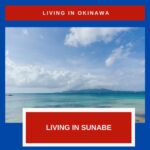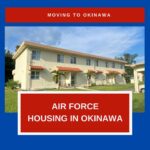So, you’re moving to another country where you don’t know the language, they drive on the wrong side of the road, there is a “not one drop” alcohol policy when it comes to drinking and driving, spiders the size of your head, and housing on base is full. You know nothing about living off base in Okinawa… what do you do now?
Or maybe you’ve lived on base for a year and are choosing to leave that life behind and jump into the deep end and live off base. Either way, this blog post will give you all the need-to-know information about making the move to living off base in Okinawa. We will touch on how you can live off base, the paperwork needed, the steps to secure a place to live, the basic costs, and a few other things you’ll want to know about off base living in Okinawa.
LIVING OFF BASE IN OKINAWA
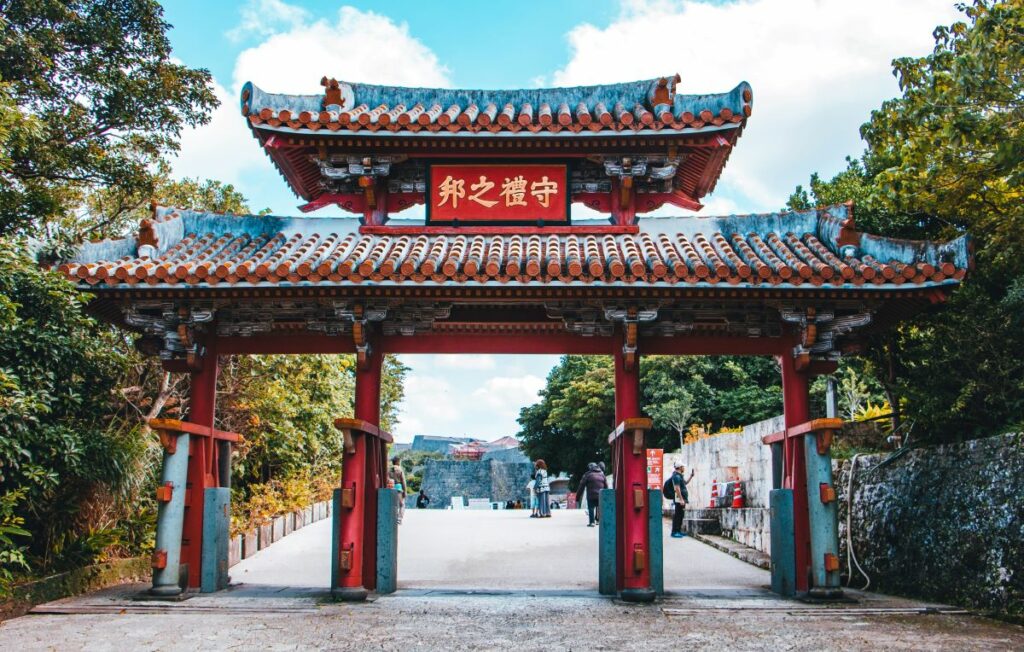
Can I live off base? The simple answer is yes…and no. All military personnel are required to live on a base. There is a policy in place known as “Live Where You Work”. This policy states that, based on the servicemembers assigned duty station, you have two options for locations to live.

Based on rank and number of dependents, you will be assigned housing options at those two locations. If housing at BOTH locations is more than 98% occupied, then you will be given the approval to live off base. If there were housing options available, after 12 months of base living you can apply to live off base as long as capacity for the servicemember’s rank is 98% or more.
Your Housing Counselor should send the Request To Reside Off Base Memo via email along with Off Base Briefing slides. The memo will need to be endorsed by any officer in your servicemembers chain of command that out ranks them and returned to Kadena Housing Office.
FINDING OFF BASE PROPERTIES
Once you are approved, you’ll be given your Overseas Housing Allowance (OHA)rate. This is similar to BAH (Basic Allowance for Housing) in the states. In short, this is your maximum allowed rent. It is determined by rank and dependents, just like BAH, and knowing your OHA will allow you to search for properties within your limit.
The easiest place to start searching is in the Facebook group called Okinawa Off Base Housing. Once approved to join the group you can start searching the posts made by housing agencies. The one thing you want to keep an eye out for is if the property is BASE APPROVED. If the agency has already gone through the approval process, then you know the Kadena Housing Office already sent people to make sure it’s suitable for living to an American standard. You can also make a post yourself with all your requirements, and agencies will contact you for potential viewings. You want to post your OHA, how many bedrooms and bathrooms that would be ideal for you, location, school district (if it matters to you, to some it does not), whether you are looking for a house or apartment and any amenities you would like. Uncommon Japanese amenities to consider listing include a dishwasher, American appliance hookups, a master bedroom with enough room for a king sized bed, storage/closets, or a garage. Browsing the group will give you an idea of what you can include in your post.
Pro-Tip: Don’t limit yourself to looking at properties at your OHA and below. Most agencies want to fill their properties and are willing to negotiate with you on the monthly rent. DOD personnel and Contractors rate a higher OHA than military servicemembers and agencies know this. Don’t be afraid to ask agencies about properties a little outside your limit and see if they are willing to come down and meet you at your OHA.
Housing agencies then will have the opportunity to link properties that may interest you, message you or comment they would like to contact you. Be prepared for an onslaught of information. You can choose to look at properties from multiple agencies if you want more options, or choose one agency to work with and they will show you multiple properties they have available.
Pro-Tip: Make sure to keep an open mind. You can request a more Americanized housing option or go for more of a traditional Japanese house. Most places are going to be smaller than what is in America but that also doesn’t mean that you won’t find beautiful and spacious single family homes in the more rural areas of Okinawa.
If you do not have Facebook, then two other places to get started would be this comprehensive list of base approved agencies or Homes.mil using the search option “Kadena.” The list by Total Okinawa has an option to email all the agencies at once or you can go through them individually, browsing their websites and Googling their reviews. Homes.mil is a website of government approved housing options, which can really streamline the process. Once you search Kadena, you can then refine your search using the options provided. Everything listed is already approved so you can take the options you find there and search more on that agency’s website for more photos and information. Again, keep an open mind and expand your search options to have a better chance of finding a place that suits your family’s needs. You can live wherever you want on Okinawa, but keep in mind that if the property is not base approved you will not receive OHA and you will need to pay out of pocket. If you want to receive your OHA, the home you choose MUST be approved by Kadena Housing Office and listed on home.mil.
PAYING FOR RENT AND UTILITIES

You’ve found your dream home on this beautiful island and now need to sign the lease and do everyone’s least favorite thing, fork over a lot of money. A fool proof option for paying everything is called GI Bill Pay. According to their website, “we pull dollars out of your U.S. bank account, convert those dollars into the local currency, and pay the bills you ask us to pay”. They can pay for any of your utilities, internet, phone bills and more. There is, however, a small monthly fee for using their services and this fee varies based on the services you sign up for. We pay just $8 per month for the GI Bill Pay service, which is absolutely worth it! For some, this is an easy yes. It’s a no hassle, no thought way of taking care of all of your bills. For others, they prefer to save their money and pay themselves. Utility bills can be paid at any of the Japanese convenience stores like Lawson, 7/11, or Family Mart by simply bringing in your bill and paying at the register. For more information on GI Bill Pay, visit their website I have linked.
COSTS TO BE PREPARED FOR
Living off base in Okinawa is not a cheap endeavor and can land many in a hard situation if you are not prepared for it. The Navy Marine Corps Relief Society can provide loans to those in need of help covering costs while waiting for reimbursement. You can also apply for an advance, but this is something you will eventually need to pay back and may not be the best option if you do not have the funds to do that.
A good rule of thumb for anyone moving to Okinawa is to have a minimum of $10,000 saved ready to be spent once you get to the island. If you end up living off base in Okinawa, your initial down payment could be upwards of $6k covering the first month’s rent and an agency fee (similar to a security deposit in the states). Of course, this is all dependent on the servicemembers rank, so plan accordingly. The good news is that you will be reimbursed for most of the costs regarding housing. You will get your OHA for the first month’s rent and the agency fee is reimbursable after filling out some paperwork through the housing office on Kadena and getting a signature from the rental agency.
What many are not prepared for are the move out costs. If you’ve lived on base before, you know that it can go either way. You could end up with a lot of leniency, being able to leave holes in the walls from nails and floors scratched up from everyday life, or the housing office could nickel and dime you for everything damaged in the home. Living off base in Okinawa you are best with preparing for the latter. The Japanese pride themselves in taking care of their possessions. Not that Americans don’t, I think there is just a cultural difference in the level of what is acceptable and what isn’t. Most leases include a detailed section of things you cannot do to the apartment. One of the biggest differences for off base living in Okinawa is that most rentals do not allow you to put holes in the walls. Any damage to the rental will most likely be billed to you.
It’s a good idea to keep a healthy record of maintenance issues marking down anything that may have broken from normal “wear and tear” and what has been fixed and what has not. This way, when you move out, you can have a backlog of all issues and whether they were addressed or not. Your safest option, though, is to have money set aside should you be billed for damages.
SCHOOL AVAILABILITY FOR THOSE LIVING OFF BASE IN OKINAWA
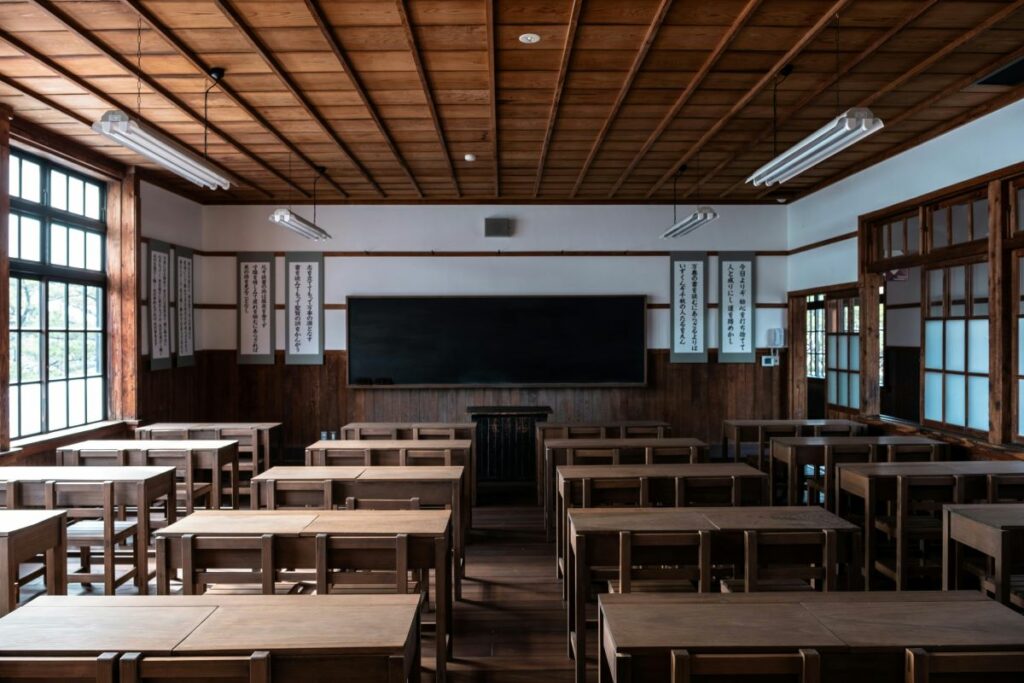
Children of Military Servicemembers on orders to Okinawa can attend the Department of Defense Dependent Schools at no cost. Once you’ve attended the newcomers brief and housing brief you should contact the school liaison. The school liaison will be able to provide you with a school zone list and a bus zone list, which you can use to help you find a place to live. If having an option for your kids to ride the bus is important to you, you’ll want to pay attention to which areas have bus services and which do not. You may be zoned for a certain school but if you live too close to the school, your child may be required to walk or have you drive them.
APPLIANCES PROVIDED BY KADENA HOUSING OFFICE
If you like the comforts of home then no fear! The Kadena Housing Office offers loaner appliances to anyone holding SOFA status if they live off base and at no cost to you. Appliances include stove, refrigerator, washer, and dryer. Some off base rentals will come with Japanese appliances, so make sure to pay attention to this during your search. Also, be sure to inquire about delivery when looking at a property. Some buildings, especially apartments, have been inspected and put on the “delivery not available” list because of no elevator, small entryways, or small stairwells that do not fit appliances. There are also instances where properties are put on the “delivery not available” list when in fact you would be able to fit the appliance through the elevator. You always have the option of picking them up yourself and doing the heavy lifting on your own. There are companies off base ready to do this for you that are not contracted through the housing office, so have no fear, you might not be completely out of luck if you don’t know anyone with a truck.
TRASH, RECYCLING, AND BULK TRASH
Some may consider this a con to living off base. Okinawa is an island (thank you captain obvious!) and because of this and their culture, trash and recycling are very important here. You rarely see public trash bins because you are expected to bring your trash home and dispose of it on your own.
Each city will provide you with a trash collecting/sorting guide to show you how to separate your trash. Each city also has its own color and set of bags for trash collecting. The basics include separating your trash into burnable trash, non-burnable trash, clear plastics, glass, cans, and cardboard. It can take some getting used to but now I can’t imagine dealing with trash any other way. There are baskets, bins, shelves, bags, and specific trash receptacles available at many big name stores off base. The BX and MCXs carry three bin trash cans as well. Trash is collected often off base as well, so the smaller bins and extra sorting won’t ever stack up in your home.
Clear trash bags are the only trash bags you will ever need. If it’s not clear, it won’t be taken. Also, if the trash collector decides you did not sort things right, the trash bag will not be picked up. We had this happen a few times when we first moved in, and it was like an iSpy book trying to find what it was that made them reject it.
Bulk trash is a beast on the island. Living off base, you will need to be prepared to pay to throw big things away. It costs a lot for disposal companies to ship it off the island. Some housing agencies provide a bulk trash pick up, at a cost of course, but there are also a few companies on the island not affiliated with housing agencies that will pick up bulk trash, also at a cost. The benefit to using a company not associated with your housing company is you take out the middleman and deal directly with the people disposing of your stuff. You can ask them if they will take certain things or get a direct quote for your stuff.
IS LIVING OFF BASE IN OKINAWA WORTH IT?
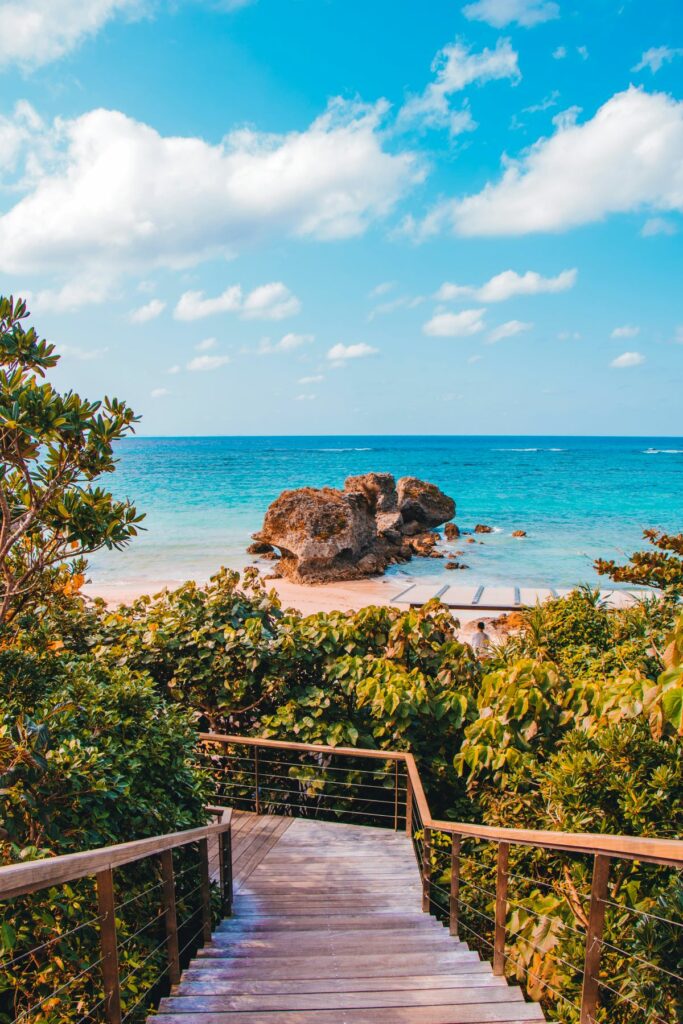
If you ask me, off base living is 1000% worth it. It might not be for you and your family, though you may not have a choice. I think the biggest thing to remember when moving to Okinawa is that being prepared is your best bet. Being prepared for the costs and stresses with living off base will soften the blow if you’re told there are no housing options on base. Contacting the Kadena Housing Office about capacity percentages before getting here may be something to consider. Their website also posts occupancy rates and is updated regularly. Your sponsor should be able to do this as well, and having an idea may help you best prepare for your arrival. If you’ve moved on base and know you want to move off base later, preparing the year you’re living on base will help make the transition smooth.
Living off base in a foreign country can be daunting. It can also be a very rewarding experience if you allow it. An open mind and heart (and a few $1000 tucked away in your bank account!) and you’ll be living like a local in no time!
Looking for more? Check out these other popular articles on moving to Okinawa.
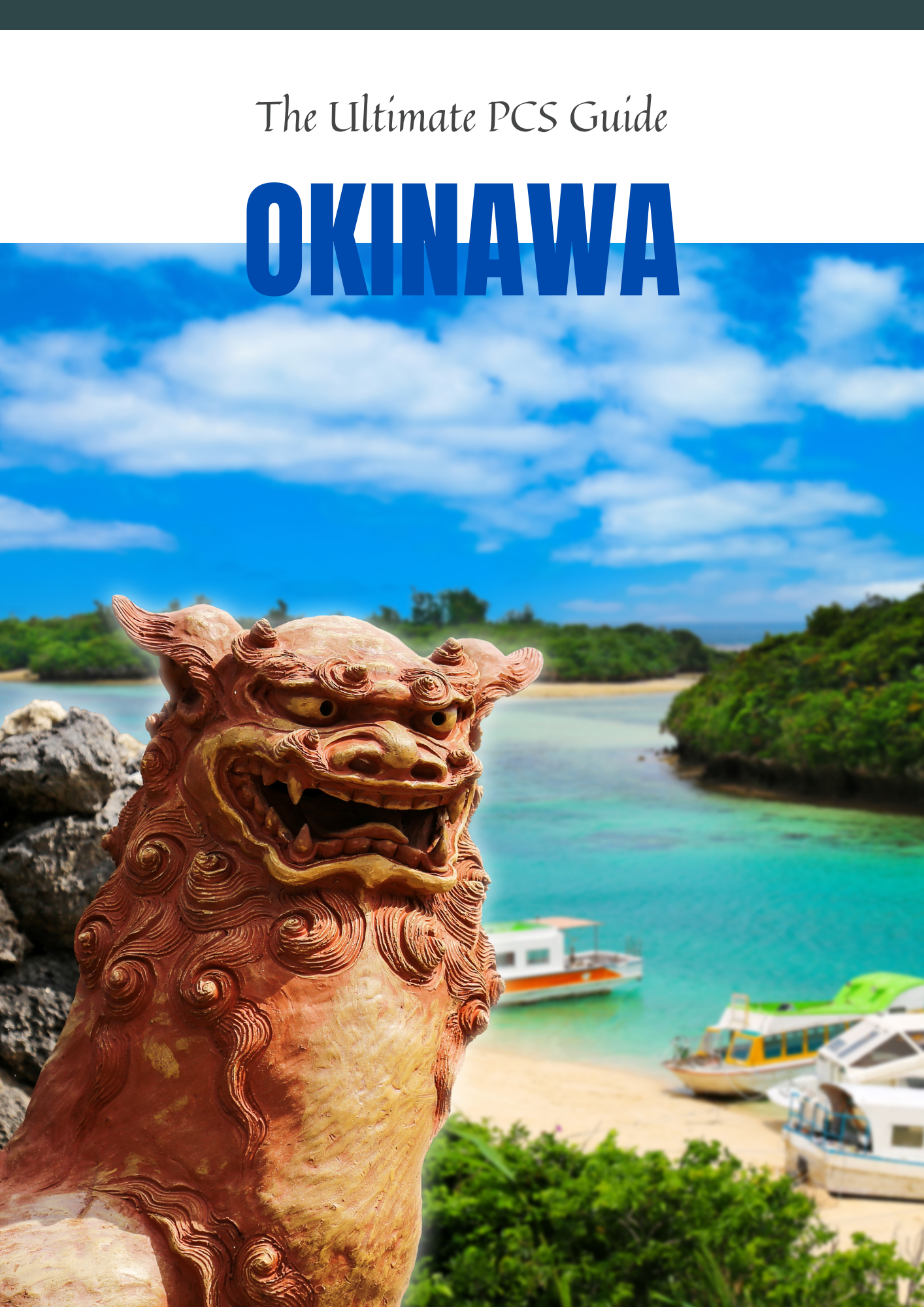
Want all this information in one spot? Grab our FREE Ultimate PCS Guide to Okinawa!
Drop your email and we will send you an ebook version of our guide, as well as send you updates on things to do here in Okinawa!


